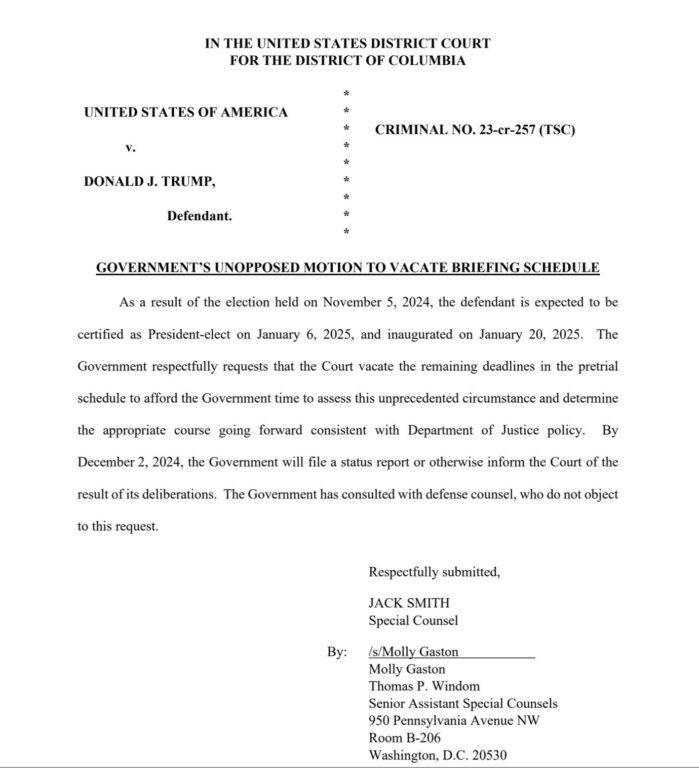WASHINGTON — The Justice Department has requested a pause in the pretrial schedule of former President Donald J. Trump’s federal criminal case, citing the outcome of the November 5, 2024, election, in which Trump is anticipated to be certified as the president-elect. The motion, filed by Special Counsel Jack Smith’s office, asks the court to vacate existing briefing deadlines to allow time for the government to assess the “unprecedented circumstance” of prosecuting an incoming president.
The motion, submitted to the U.S. District Court for the District of Columbia, requests that all remaining deadlines be temporarily lifted. It states that by December 2, the government will update the court with a status report on how it plans to proceed, noting that any decision will be made in alignment with Department of Justice policy.
“As a result of the election held on November 5, 2024, the defendant is expected to be certified as President-elect on January 6, 2025, and inaugurated on January 20, 2025,” the filing reads. The government’s motion reflects the unique legal and procedural challenges posed by Trump’s anticipated return to the White House while facing federal charges.

Special Counsel Jack Smith, along with Senior Assistant Special Counsels Molly Gaston and Thomas Windom, submitted the request after consulting with Trump’s defense team, which did not object to the proposed delay.
The move highlights the legal complexities that could arise from prosecuting a sitting or incoming president, particularly with respect to potential limitations on judicial proceedings against a head of state. Trump faces multiple charges in the District of Columbia case, including conspiracy to defraud the United States, related to his actions following the 2020 presidential election.
The Justice Department’s deliberations on the case could involve weighing constitutional considerations regarding presidential immunity and executive authority, as well as potential impacts on the functioning of the executive branch once Trump assumes office.
The court has yet to issue a ruling on the motion, but legal experts say the situation could prompt unprecedented procedural decisions given the interplay between Trump’s criminal indictments and his imminent inauguration.